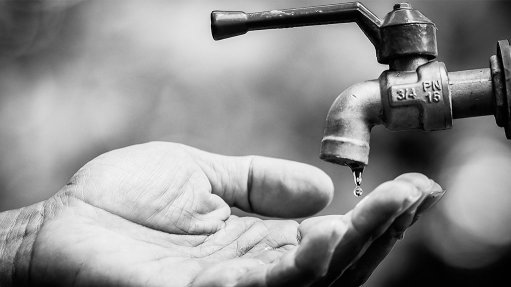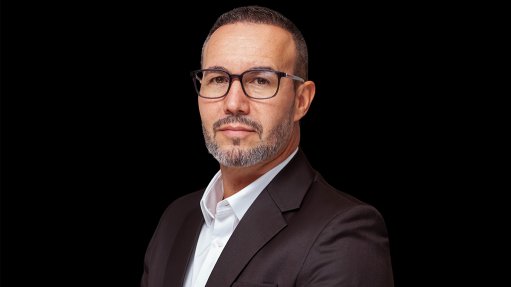What a difference a day makes . . .
As we move into a fourth week of formal lockdown and as every day merges into the next and weeks roll into each other, only punctuated by a food box delivery, I am nevertheless struck daily by the speed at which Covid-19 has wrought havoc from east to west, north and south.Just over two months ago, I was at the Cape Town Investing in African Mining Conference, where speakers extolled the benefits of investing in the Democratic Republic of Congo (DRC) over Chile.
The disease’s potential to create political havoc became apparent with the death of Covid-19 on April 17 of Nigeria’s de facto head of government, Malam Abba Kyari, President Muhammadu Buhari’s long-standing chief of staff. Kyari was 68 and had underlying health issues. Most of the political elite now jockeying to replace him are septuagenarians – the age group most vulnerable to Covid-19 – as are several of Africa’s longest-standing leaders.
Democracy is again vulnerable as governments continentwide have taken on emergency powers to fight Covid-19. The risk is that, once taken, governments will be reluctant to give these powers up. The normal democratic cycle is likely to be interrupted. Ethiopia has postponed its August elections and, although President John Magufuli insists that Tanzania’s October elections will go ahead, public gatherings may still be banned. Elsewhere, the crisis has increased authoritarianism: Egypt has censured foreign journalists for ‘bad faith’ reporting on Covid-19 and Zimbabwe’s President, Emmerson Mnangagwa, has threatened 20-year jail sentences for disease-related rumours on social media! Security forces deployment to enforce lockdown has seen a spike in human rights abuses: Nigeria’s National Human Rights Commission claims security forces killed 18 civilians enforcing lockdown. Kenya’s President Uhuru Kenyatta apologised after police had beat people in a food queue in Nairobi. In South Africa, people have filmed soldiers beating people and police have used tear gas to enforce lockdown.
The next tsunami will be the force of the demand shock. Its impact is almost impossible to quantify. The International Monetary Fund (IMF) tried. Its forecast of a 3% global contraction, in turn, sent copper prices – the DRC and Zambia’s mainstay – crashing from December’s $6 276/t to $5 111/t on April 15. As South Africa’s mines start to open up slowly, others across the continent – from Vedanta Zinc in Namibia to Glencore’s Mopani in Zambia – are shutting down. Oil – Algeria, Angola and Nigeria’s main export and source of government revenue – made history on April 20 as futures crashed to about $2/bl. The International Energy Agency says the oil glut is such that no cuts the Organisation of the Oil Exporting Countries makes will restore prices. Nigeria has six April cargoes unsold, despite unilaterally slashing its prices. Africa’s lost trade is estimated at $39-billion. With airlines grounded, the north to south supply chain is broken and will be slow to recover. Airlines’ freight compartments are no longer available to Africa’s south-north exporters, leaving Côte d’Ivoire’s mango producers and Kenya’s flower farmers in the lurch.
Those who will lose most are the millions of people who live from day to day and have to be out on the streets in markets feeding the ‘sachet’ economy, where everything from cigarettes to soap and airtime is sold in its smallest conceivable unit. Lockdown for these people has an immediate consequence – hunger. This is particularly true of the megacities of Lagos, with a population of roughly 13-million people, Cairo (10-million) and Kinshasa (12-million). News of a lockdown sent food prices rocketing in Kinshasa’s markets and supermarkets, raising fears that lockdown would unleash the pillages of the past that tore the country’s main cities apart. The DRC’s authorities relented and implemented a practical localised isolation in the elite Kinshasa suburb where the first case of Covid-19 was recorded. Similarly, Kenyatta has ruled out a total lockdown, fearing ‘mass hunger’.
Covid-19 has shown the inadequacy of Africa’s domestic healthcare systems. There is an acute shortage of medical infrastructure, of personal protective equipment, masks and test kits. The African Union’s CDC speaks of rolling out a million test kits. For a continent of over a billion people, the inadequacy is stark. In the DRC, the Covid-19 pandemic arrives at a time when the country is battling to end an Ebola outbreak, and fight a measles epidemic, and a cholera outbreak. In Nigeria, the super-rich political elites, alongside their poorest kinsmen, now face the consequences of 30 years of military and civilian government corruption that has eroded Nigeria’s once famed ‘middle class’ healthcare infrastructure. With Nigeria’s airspace closed, the elite cannot get treatment abroad. Nigerians are among the most sought-after health tourists – enticed to Dubai, in the United Arab Emirates, London, in the UK, and South Africa for routine healthcare, they spend $10 000 to $15 000 for a round trip.
As in any such crisis, there are upsides. Africa’s technology boom is rising to the challenge. Nigeria’s tech hubs are designing contact tracing apps. In South Africa, bots deliver live chat health advice. In Kenya, mobile money providers have waived fees to reduce the use of cash. In Uganda, an app enables market traders to sell their produce and get it biked to customers’ homes and comply with lockdown rules. At a macro level, the IMF has swiftly granted 19 African countries debt relief and others immediate Budget support. And on the political front, South Africa’s Cyril Ramaphosa’s swift action has reunited South Africans. His success at flattening the infection curve has established him at home, across Africa and globally as an outstanding leader in this fight.
Article Enquiry
Email Article
Save Article
Feedback
To advertise email advertising@creamermedia.co.za or click here
Announcements
What's On
Subscribe to improve your user experience...
Option 1 (equivalent of R125 a month):
Receive a weekly copy of Creamer Media's Engineering News & Mining Weekly magazine
(print copy for those in South Africa and e-magazine for those outside of South Africa)
Receive daily email newsletters
Access to full search results
Access archive of magazine back copies
Access to Projects in Progress
Access to ONE Research Report of your choice in PDF format
Option 2 (equivalent of R375 a month):
All benefits from Option 1
PLUS
Access to Creamer Media's Research Channel Africa for ALL Research Reports, in PDF format, on various industrial and mining sectors
including Electricity; Water; Energy Transition; Hydrogen; Roads, Rail and Ports; Coal; Gold; Platinum; Battery Metals; etc.
Already a subscriber?
Forgotten your password?
Receive weekly copy of Creamer Media's Engineering News & Mining Weekly magazine (print copy for those in South Africa and e-magazine for those outside of South Africa)
➕
Recieve daily email newsletters
➕
Access to full search results
➕
Access archive of magazine back copies
➕
Access to Projects in Progress
➕
Access to ONE Research Report of your choice in PDF format
RESEARCH CHANNEL AFRICA
R4500 (equivalent of R375 a month)
SUBSCRIBEAll benefits from Option 1
➕
Access to Creamer Media's Research Channel Africa for ALL Research Reports on various industrial and mining sectors, in PDF format, including on:
Electricity
➕
Water
➕
Energy Transition
➕
Hydrogen
➕
Roads, Rail and Ports
➕
Coal
➕
Gold
➕
Platinum
➕
Battery Metals
➕
etc.
Receive all benefits from Option 1 or Option 2 delivered to numerous people at your company
➕
Multiple User names and Passwords for simultaneous log-ins
➕
Intranet integration access to all in your organisation


















